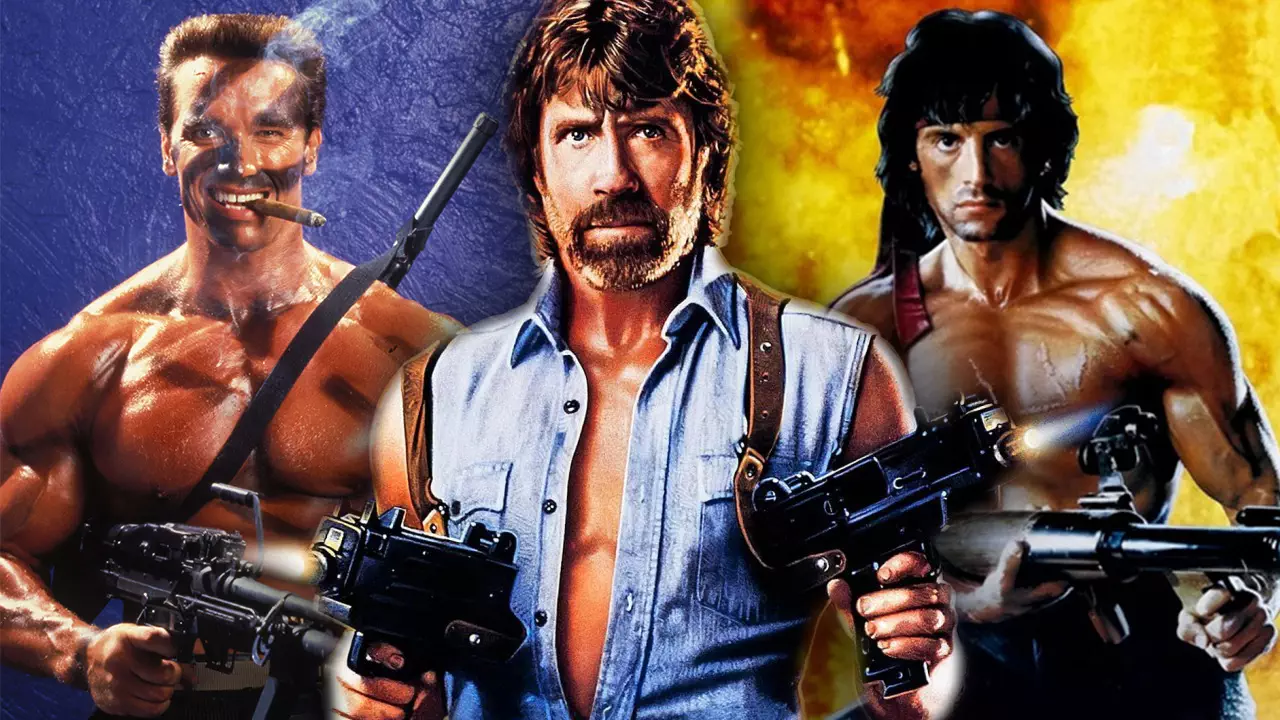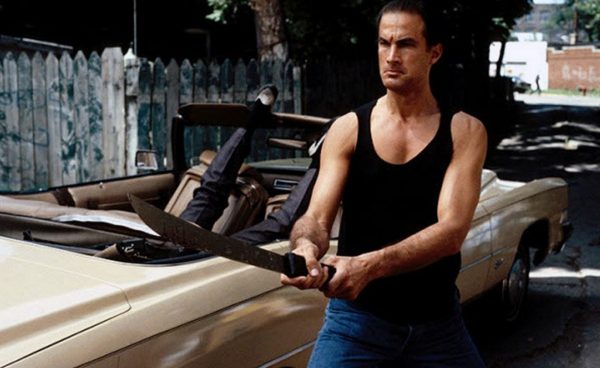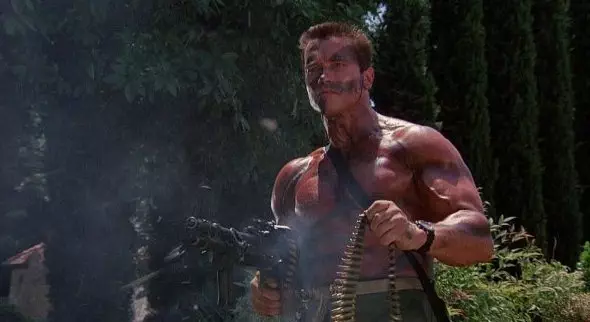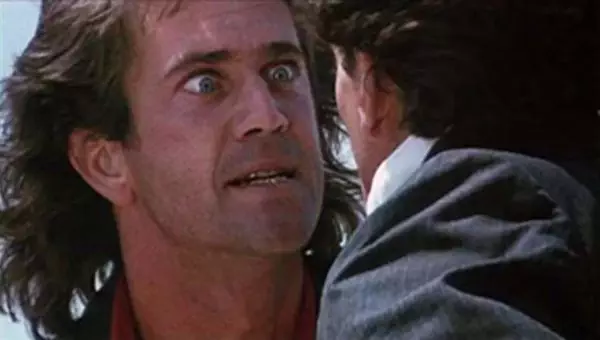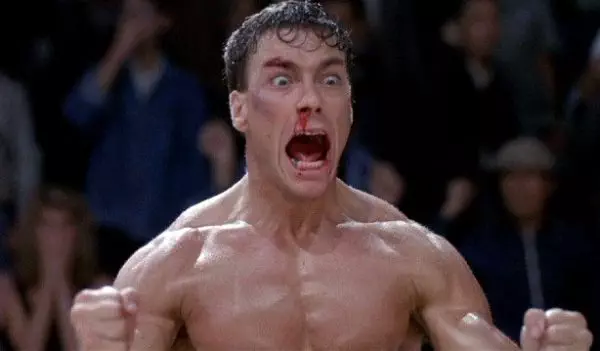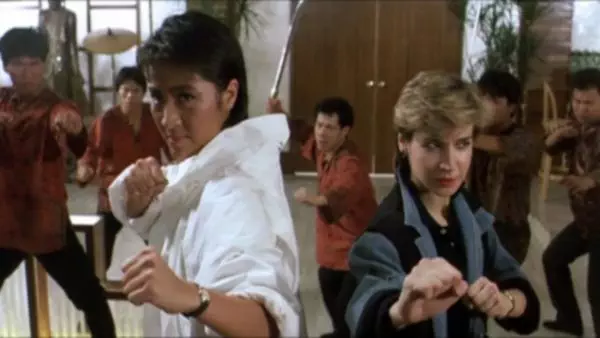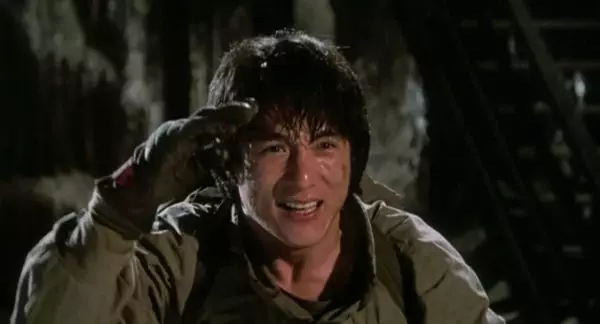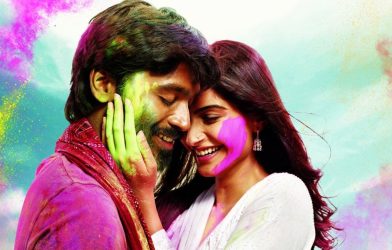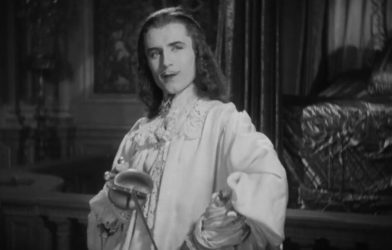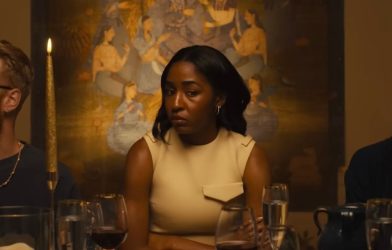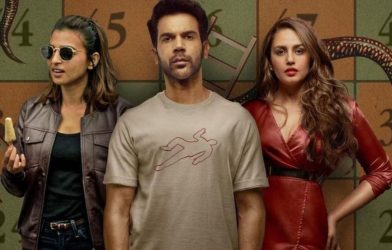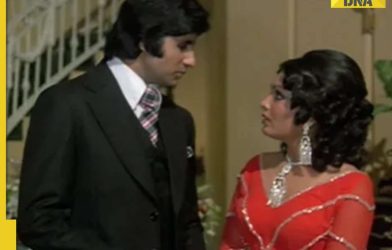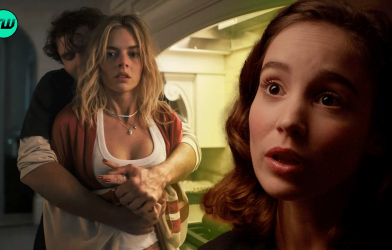Tom Jolliffe with his picks of the essential 1980s action movies…
Cheesy, excessive, over the top and funny. Something about the 1980s action movie marks it as the most extravagant, bold and explosive era of the genre. The 90s infused MTV stylistics into the genre and certainly went for a flashier style of shooting and cutting action (occasionally at the expense of visual coherence), whereas the 80s action film had a predisposition for brawny heroes, stoic infallibility, theatrical villains and a lavish approach to on screen pyrotechnics.
The humour was also key, marking a vastly different tone to the grittier 70’s era of cinema. Still, you had the buddy movies which were very clear in their humour and definitely in on the joke, and you have those films (usually with Chuck/Charles and Cannon films) which are inherently funny, but we’re not sure how intentional it was.
In retrospect, many of the films which were hammered by critics as being mindless explosion fests are essentially the kind of films being lauded with praise in cinemas now. Only there’s a difference: The MCU vehicle is heavily reliant on CGI and production line formula. The 80s action star and film had to do this stuff in camera, and did so with a gleeful relish for the biggest explosions or craziest stunts with studios, stars and directors in a perpetual battle to outdo each other (Sylvester Stallone vs Arnold Schwarzenegger in particular).
The physicality brought by stars often dismissed as bad actors was a vastly underrated talent in its own right and rarely matched by the modern action star (bar of course Mr. Tom Cruise). No, in the 80s the tough guys were tough guys and the on screen ideal of the tough guy was almost comically exaggerated by their indestructible theatrics and ability to have a one liner fit for all occasions (“Excuse my friend, he’s dead tired!”).
So sit down, get a bicep curl going, crack on your favourite James Horner action score (I’m currently doing Commando), and get to da choppah!! Here are some essential 80s action movies…
Above The Law
At the tail end of the 80s, whilst Arnold and Sly were riding high, and Jean-Claude Van Damme and Dolph Lundgren were announcing themselves in the genre, there was also Steven Seagal. Backed by a self perpetuating mystique and enigmatic past, Seagal had screen presence to burn. His early golden period was bookended by Andrew Davis, who had already directed Chuck Norris in Code of Silence, and would direct Seagal’s biggest smash, Under Siege in the early 90’s. Davis most famously directed The Fugitive. He knows what he’s doing and it shows with Above the Law.
Seagal had a natural, stoically badass presence that was well bolstered by a support cast including Pam Grier, Sharon Stone and Henry Silva. The action scenes are great, utilising Seagal’s Aikido talents and came as a complete contrast to what his rivals were doing. They were wincingly violent, brutally efficient and so untheatrical as to be magnificently theatrical. Nico’s subplot of agency intrigue and corruption never loses us thanks to Davis’ tight grip on proceedings. This is Seagal’s show though and he came out the blocks firing (and bone breaking).
SEE ALSO: The Film Feud of the 90s: Steven Seagal vs Jean-Claude Van Damme
Rambo: First Blood Part II
Look, First Blood is the better film. There’s no two ways about it, and it’s often overshadowed by the sequels which really gave Rambo his iconic image and status. First Blood is more a psychological thriller with action in it, delving into the psyche of not just Rambo, but the duality between the PTSD suffering vet and the small town Sheriff driven by pride to dig himself further and further into an unwinnable situation.
First Blood is a classic and Stallone acts his ass off, but Rambo 2 is the epitome of the 80s run and gun cheese fest. Character takes a marked back seat, but George P. Cosmatos delivers jaw dropping, explosive arrow laden carnage as Stallone, shredded down to around 2.5-3% body fat at the time throws himself into a one against hundreds scenario with gusto. To hell with logic and realism just grab your machine gun, fire it in the air and roar.
SEE ALSO: 1985: When Sylvester Stallone was King of the World
Commando
Arnold starred in some of the greatest action films of the era, with a particular gift for melding sci-fi and horror with action with films like Terminator, Total Recall, The Running Man and Predator. His record between 1982 and 1991 was unsurpassed by anyone else in the genre for firing out belters and even some of his lesser works like Red Heat or Raw Deal are loaded with vintage moments and I say this as one who historically sided with Stallone in the Arnold vs Sly debate.
When one thinks of the manliest, most unabashed 80’s action film ever made, you cannot look past Commando. It’s not as dumb as people thought. It’s in on the joke for the most part, and nowadays those unmistakably 80’s trends and tropes carry an enjoyable nostalgic warmth. It borders spoof but Schwarzenegger as John Matrix might just be the ultimate one many army of 80s cinema. He’s probably the only man who could take out John Wick.
Mark L. Lester (name drop, I’m currently working with Lester on a couple of projects) wasn’t done there either. Aside from his array of genre hopping classics like Firestarter and Class of 1984, he also made Showdown in Little Tokyo, an essential buddy comedy that’s ruthlessly lithe but hilarious and matches Commando for superhuman machismo.
SEE ALSO: Three Rs with Arnold Schwarzenegger: Raw Deal, Red Heat and The Running Man
Lethal Weapon
Mel Gibson certainly smashed through the decade as an action specialist, not only plundering the wastelands for gasoline in Mad Max 2 and 3 (sue me, I love Thunderdome), but he was part of arguably the most iconic buddy cop franchise ever. Lethal Weapon perfected the sub-genre (48 Hours is also ace) and brought Shane Black to the forefront of the genre. The Gibson and Danny Glover chemistry is great and beneath the toughness, the pair added mutual vulnerabilities that offered an alternative to the unflawed heroic masculinity of Arnold et al.
Gibson as Riggs is damaged goods, a rogue cop on the edge, played to perfection, whilst Glover did/does world weary as good as anyone. Murtaugh has just turned 50, is looking at retirement and facing up to being past his shelf life until he has to dig within, to show he’s still got what it takes to fuck up some bad guys. “No way you live!”
SEE ALSO: Looking Back at the Lethal Weapon Franchise
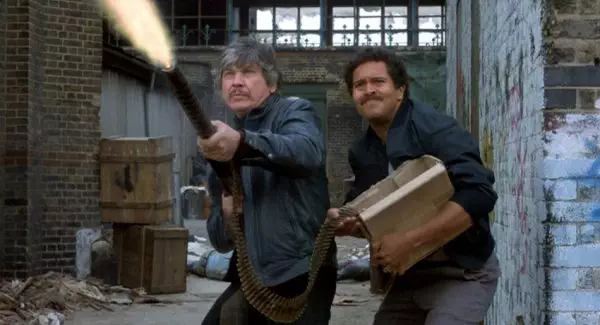
Death Wish 3
Death Wish 3 is comically ludicrous. Charles Bronson strolls around killing swathes of bad guys as he helps a group of downtrodden residents who are besieged by a maniacal criminal gang. The franchise began with exploitative grit, before descending into enjoyably mindless violence. Very few films perfectly surmised the quality (and you can take that whichever way you rate Cannon) as Death Wish 3.
Minimal plot, maximum insanity. Stunt men almost dying in the process and a body count that was clocking near the hundreds. Bronson is at his most Bronson here. This is the spoof version of Charlie Bronson you saw in The Simpsons and other shows, the point at which subtlety had gone and he wasn’t working with greats like Sergio Leone or Walter Hill.
SEE ALSO: Flagrant Misuse of a Bazooka, the Cannon Films Way
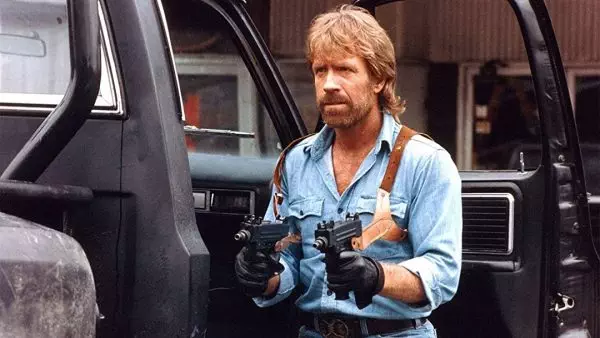
Invasion U.S.A
This one also screams Cannon. Norris did star in better, like Code of Silence and Lone Wolf McQuade. Ironically, for someone so synonymous with Cannon, it was probably his two Orion pictures which proved his best works. Still, they don’t quite scream 80’s in the same way Invasion USA does. Everything is dialled up to 11. The jingoistic Cold War era plot is the cereal box, Saturday morning cartoon version of Red Dawn, whilst the violence and brutality exceeds many of the genre of that era.
All the while, Chuck Norris plays the most idealised internet version of Chuck Norris possible. This is the guy who doesn’t do push ups, he just pushes the Earth down. From double denim, to twin Uzis, one of cinemas most unrepentantly grotesque villains, to the ultimate villain finale send off (which was also repeated in the aforementioned Death Wish 3), this drips with 80s excess.
SEE ALSO: An Ode to Chuck Norris
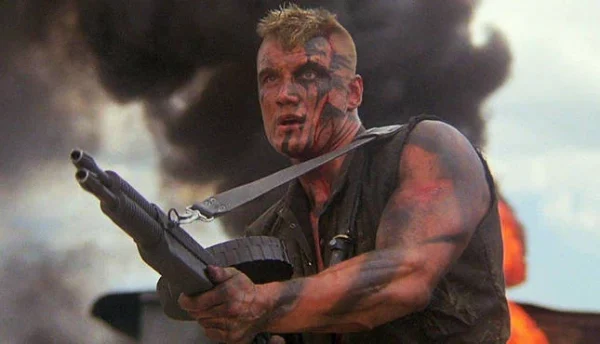
Red Scorpion
Another run and gun special. This one came right at the tail end of the Cold War. Russia proved a cinematic goldmine for bad guys, but this film went a different route, turning its Russian Spetsnaz killing machine against his own people to fight for freedom and the ‘murican way. Dolph is the Russian villain turned hero, in a film that would become more synonymous for the involvement of famed lobbyist turned jailbird Jack Abramoff. Joseph Zito also directed Invasion USA and Missing In Action. This guy knew run and gun in the 80s.
Red Scorpion actually has some interesting side plots with Nikolai (Lundgren) finding himself taken in by an African tribe after being left for dead. He forms a particular relationship with one tribe elder (played by a real tribesman who at times seems genuinely disturbed by the set dressed with dead people and animals) that has moments which are surprisingly endearing for this era of action cinema. Most importantly, the run and gun chaos is well handled, leading to a pyrotechnic laden finale.
This one, of all Dolph’s solo lead films, felt like the biggest in explosive scale. In time it’s picked up more love, but moviegoers couldn’t separate politics from cinema at the time, and it came 1-2 years after the tide was turning against run and gun cinema (which Stallone even found out himself in Rambo III).
SEE ALSO: Dolph Hard: When Dolph Lundgren Does Die Hard
Bloodsport
The film that not only put Van Damme on the map, but one which re-galvanised the martial arts genre in America. Van Damme had a unique presence and boyish charm which made up for slightly stiff delivery and an accent that made Arnold sound like Oscar Wilde. No one had ever quite moved like Van Damme and his show stopping helicopter kicks were a revelation to action lovers.
“Based on a true story,” Bloodsport sees Van Damme as Frank Dux who enters into a brutal Kumite tournament. Unfortunately for him, he ditches the Army to do this and is tracked by two agents (one played by Forest Whitaker). Dux must recall his teachings and battle through the vast array of martial arts, all with unique styles, before eventually facing the most dangerous opponent, Chong Li (the legendary, Bolo Yeung). Great soundtrack, score, action and a little heart too.
SEE ALSO: Enter The Muscles from Brussels: The Jean-Claude Van Damme Tournament Fight Film
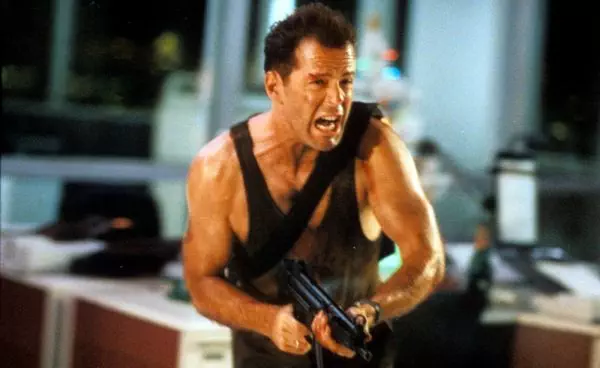
Die Hard
You can say Lethal Weapon really set the benchmark for the buddy comedy, and Bloodsport was the trigger point for a slew of tournament martial arts films in its wake. Still, no film immortalised its own sub-genre quite like Die Hard. Whether it’s Die Hard on a plane, train, boat, bus, shopping mall, or dildo emporium, nothing has ever compared to the OG.
Die Hard executes a simple premise as perfectly as is possible to do, and does so with intelligence, forethought and great humour. The film is loaded with great set ups and pay offs (fists with your toes, the watch, etc). Nothing feels incidental. Above all, it’s got a revolutionary action hero in Bruce Willis who tore up the 80’s action rule book. Here was a fallible shlub, prone to flights of impudent improvisation. The king of winging it. He was will over skill. Up against him was Hans Gruber, played to utter perfection and devilish charm by Alan Rickman.
SEE ALSO: Die Hard on a Shoestring: The Low Budget Die Hard Clones
Police Assassins / Yes, Madam
Two icons of action for the ladies team. They both launched from the same springboard and whilst Michelle Yeoh has enjoyed a great resurgence, I have particular fondness for the first lady of action, the real deal, queen of ass-kickery… Cynthia Rothrock.
Police Assassins came during a boom in Hong Kong cinema. It was a stylistic and cultural shift from wuxia cinema and traditional, period Kung-Fu movies, to more contemporary tales of cops, robbers and gangsters. Between 1983 to around 1995 the level of stunts, intricacy of fight choreography and a new approach to shooting and cutting fights, lead to a peak era of action cinema. Stunts looked as painful as they did impressive. Performers had to be physically able to perform the fights too, with less manoeuvrability in this shooting style for doubling.
Rothrock being a world champ was more than ready and Michelle Yeoh, with a background in ballet, adapted quickly and brought some balletic grace with her. Police Assassins is a great buddy action film filled with all the trappings you expect from peak era Hong Kong cinema, and the uniqueness of the two female heroines made it stand out (paving the way for more).
SEE ALSO: The Contemporary Queens of Action Cinema
Armour of God
It’s difficult to pick one Jackie Chan action opus over another from this period. The first trilogy of Police Story films are perhaps the most groundbreaking of the fight film genre in HK. The rollicking adventure of Project A or comical brawling of Dragons Forever and Meals on Wheels were also superb. I do love Armour of God though, part of a trilogy of Indiana Jones style action adventures films with Chan playing a wise-cracking, impish but charming adventurer.
Here, he’s sent on a mission to recover the Armour of God. The plot is simple and never veers off a course loaded with comedy, fights and insane stunts. Stunts which nearly killed Chan. His iconic post credits blooper reels have a particularly nasty fall on this one, with fears he’d broken his neck. Still, around this era, fights designed by Chan, Sammo Hung, Corey Yeun, Yeun Biao or Yeun Woo Ping were unrivalled. Probably to this day. Ironically, Rothrock was eyed to star in this film, but due to scheduling she ended up opposite Yeun Biao in Righting Wrongs.
SEE ALSO: The Essential Jackie Chan Movies
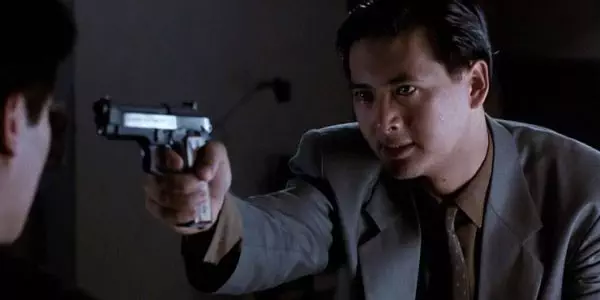
The Killer
John Woo had already dipped his toes into the world of guns and gangsters with A Better Tomorrow. The Killer would mark his first bonafide masterpiece, perfecting his distinct style and creating a captivating story, full of the kind of duality that marks his best works.
Chow Yun-fat provides the kind of pathos and charm few can match, given a platform to express himself by a director who digs for more emotion than you tend to find in the American equivalents. Woo’s gift for crafting dazzling, and beautiful action sequences is fully in play. Each set piece is balletic and beautiful and none more so than a chaotic church set finale.
SEE ALSO: The Essential Films of John Woo
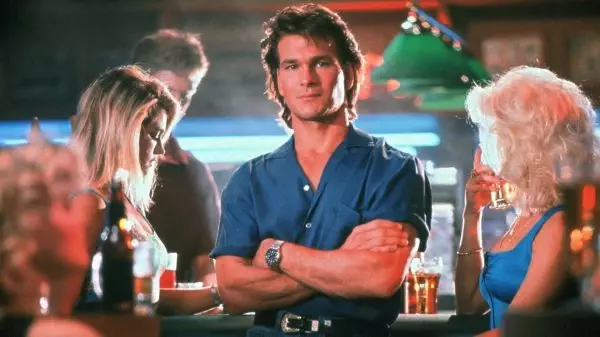
Road House
Perfection… oh, I need to say more? Road House screams 80s. If you cut it, it will bleed neon (probably the same shade of salmon pink as the title card). Patrick Swayze was small in stature but huge in stoic charisma with his action work. He belied the beefy excess of more iconic action rivals (Swayze’s most iconic roles remain in his ‘chick-flicks’), but he was incomparably cool here (and more so in Point Break).
Like so many films of this era that were usually dismissed by critics, this film has aged well. Why? Because action films now aren’t as well crafted. They don’t smash shit up like they used to, or blow things up for real. They don’t look as beautifully shot as these do, because there were a lot of God-like cinematographers plying their trade and shooting on film. Action films can’t call upon geniuses like Basil Poledouris, Michael Kamen, James Horner or Jerry Goldsmith to score their films now either.
Roadhouse doesn’t look or sound special by general standards of the 80s, but by today’s standards, even compared to films that cost $200 million to make, it looks fucking glorious and sounds it too. Swayze is cool, Sam Elliott likewise and Ben Gazzara has way too much fun played an unforgivably odious prick.
SEE ALSO: An Undeniable Action Classic: Road House
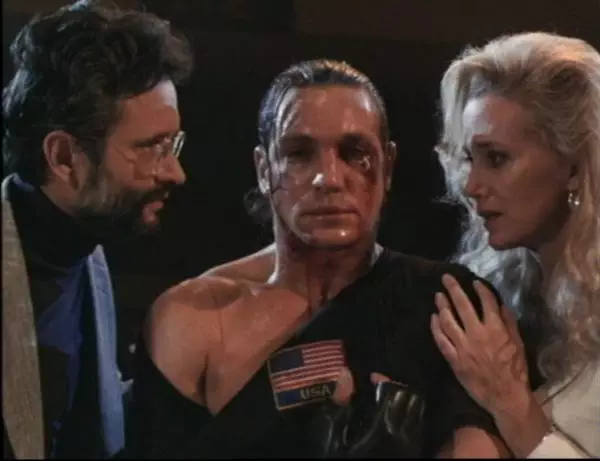
Best of the Best
POP IT TOMMY!!! There aren’t too many formulaic action films which can boast a cast including one Oscar winner and three further nominees. Okay, not for this film, but for prior works. The gravitas provided by Eric Roberts, James Earl Jones, Sally Kirkland and Louise Fletcher really elevates Best of the Best beyond the genre norms in a film that has as much heart as it does fisticuffs.
This was an old favourite of mine in the VHS era and remains so. Alongside the aforementioned cast, you also have Philip Rhee, whose career as a leading man didn’t go much beyond the franchise this spawned, in spite of his charisma and having more on screen humility than a lot of his rivals. Additionally, Chris Penn is great in this too as a racist, hick cowboy who learns the error of his ways and respect.
SEE ALSO: The B-Movie With The Oscar Powered Pedigree – Best of the Best
What are your favourite 80s action films? Let us know on our social channels @flickeringmyth or hit me up on Instagram here…

